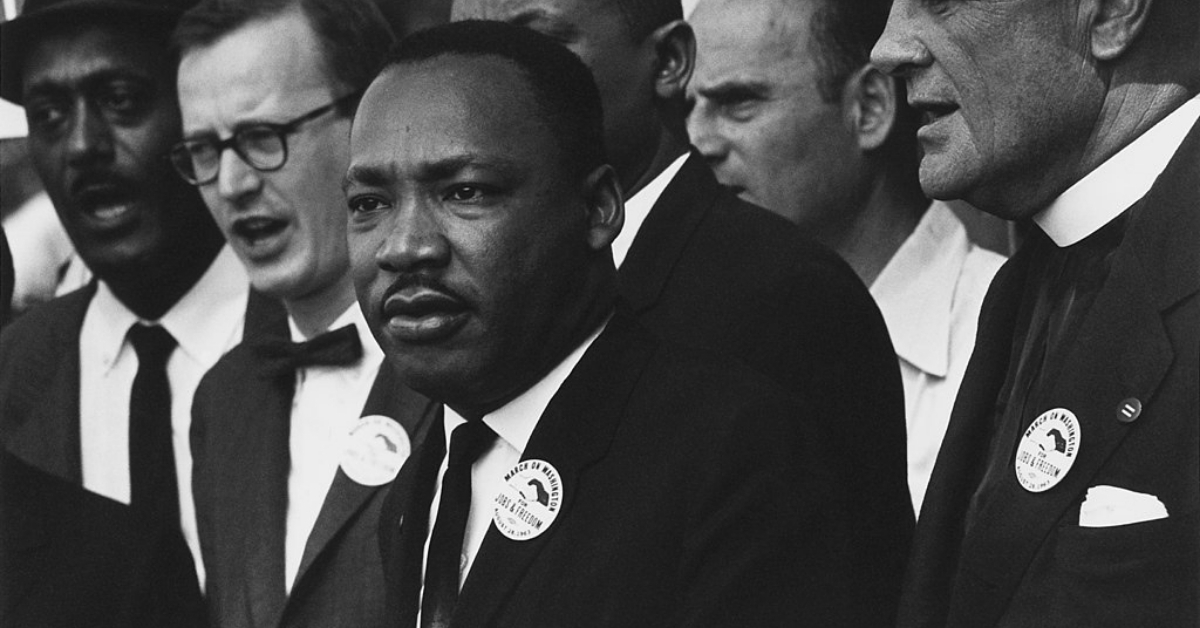“Because he had a dream I am able to live out my dreams. I am forever mindful. Forever grateful. Because he had a dream I’ll never stop dreaming and dreams are forever. King. Forever.”
Because he had a dream I am able to live out my dreams. I am forever mindful. Forever grateful. Because he had a dream I’ll never stop dreaming and dreams are forever. King. Forever.
— Lil Wayne WEEZY F (@LilTunechi) January 18, 2021
The poetry in this tweet might have seemed to come from a more eloquent rapper, but upon further inspection, it seems to come from an emcee known more for being the father of Southern Hip-Hop’s drug culture, Lil’ Wayne.
While Twitter seems to be having a field day laughing at Tunechi as he celebrates Martin Luther King, Jr.’s nationally-recognized holiday.
But here are five reasons why the Young Money executive has every right to be associated with his success with Dr. King’s famous speech from the March on Washington for Jobs and Freedom.
The march where he gave the speech was according to Our Documents, a government resource, was the largest demonstration for human rights and employment in United States history.
Various civil rights organizations came together on the Lincoln Memorial from a different perspective to talk about bringing people together about advanced economic opportunities.
Lil’ Wayne as an executive has benefited from Dr. King’s efforts and it allowed him to provide jobs in an industry that was incredibly exploitive of artists in the past. Thanks to the Morehouse man’s dream, Lil Wayne has been able to realize his dream of being a businessman that has made Nicki Minaj and Drake multi-millionaires.
Dr. King was 34 when he wrote this profound speech.
At 38-years-old, Lil Wayne is actually older than what the late freedom fighter was when he made this speech.
The influence that that young 30-something opened the ears of elders that thought you had to be a person of a certain age to be influential. Both men have influenced millions to see their respective worlds in a grander space than what they were born into.
Dr. King reflected on a world where different races came together and Lil’ Wayne, though he has often poorly communicated that, desires to live in a multicultural world.
Famously Dr. King orated, “I have a dream that one day little Black boys and girls will be holding hands with little white boys and girls.” Lil Wayne has mentioned several times about the white officer, Uncle Bob who saved his life when he was a kid to clarify why he was cautious about vilifying all police officers during 2020’s Summer of Civil Unrest.
Weezy said on his Young Money radio:
“My life was saved when I was young … I was 12 or something, I think. Shot myself. I was saved by a white cop, Uncle Bob. So you have to understand … you have to understand the way I view police, period. I was saved by a white cop.”
“There was a bunch of black cops jumped over me when they saw me at that door, laying on the floor with that hole in my chest. He refused to. Those black cops jumped over me, and ran through the crib, and said, ‘We found the gun, we found this, we found that.’ He said, ‘I found this baby on this floor. I need to get to a hospital.’ He didn’t wait for an ambulance. He took his car. He made somebody drive it, and he made sure that I lived.”
He talks about not seeing color, even as sometimes he too experiences incredulous discrimination. However, with a desire to see community versus discrimination, unlike Dr. King, he has opted to stay silent hoping for bigotry to fade and perhaps missed an opportunity to actually work toward this dream coming true.
Dr. King’s dream was birthed out of knowing he was born to be great.
Dr. King came from one of the most notable families in Black Atlanta. His father, Dr. Martin Luther King, Sr. (a prominent preacher from the city), pushed young Martin to be great and so he was. Lil Wayne has spoken about knowing that he was born to be great.
This is evident by the trajectory that their careers were set on when they were teens. MLK was 15 when he enrolled in Morehouse College, studying under Dr. Benjamin Mays and Dr. George Kelsey, and being clear on his purpose.
Though by 12, Lil Wayne was signed to Cash Money. It was not until 14 or 15 that he was officially a Hot Boy and making music and adding to the American lexicon with his colloquial nickname for gluttonous jewelry, “Bling Bling.”
Dr. King’s “I Have A Dream” Speech was about possibility.
Lil Wayne understands that the social constraints of segregation that Dr. King’s work helped destroy (sorta) would have stopped the possibility of him being a rapper.
His tweet of gratitude should at the very least let the fans and critics alike know that the controversial entertainer knows he stands on shoulders — a reality people forget because of his lavish lifestyle and his association with people like Donald Trump.
Who can deny his statement, had it not been for Dr. King there would have been no Lil Wayne.
